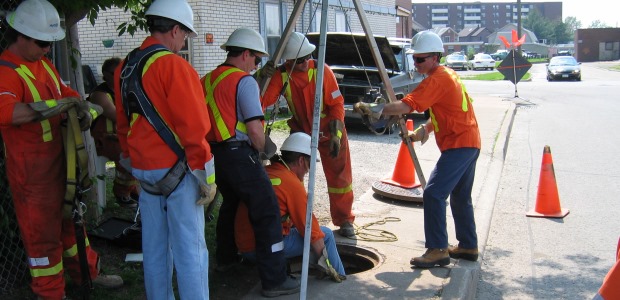
Oregon OSHA Details Confined Space Rule Changes
The proposed changes to OAR 437-002-0146, its confined space rule, include removing the term "self-rescue" from the rule, except in a note clarifying that self-rescue is not a viable option.
Oregon OSHA on July 25 announced it will hold a public hearing Aug. 25 on proposed changes to its confined space standard for general industry and construction. The public hearing will start at 10 a.m. at Portland General Electric, 4245 Kale St. NE in Salem.
In 2012, the agency adopted OAR 437-002-0146, a rule initiated to address confined space hazards for the construction industry because the previous rule, OAR 437-002-1910.146, did not apply to construction. "The goal in this process was to draft a rule that was significantly less confusing than the current rule, address shortcomings with the current rule, and organize the standard so employers can better understand what is expected of them. However, in September of 2013, Oregon OSHA received questions about certain provisions of the rule and their impacts on the industry, and we concluded there was enough substance to those concerns to justify reconvening a stakeholder group to address those concerns. This rulemaking amends OAR 437-002-0146, Confined Spaces. These amendments clarify employer obligations and eliminate confusing requirements," according to its notice announcing the public meeting.
The notice explains the proposed amendments. For example, a paragraph on exceptions for excavation work is being revised to indicate these rules apply only in situations where employees can bodily enter sewer spaces. Also, a note was added that when fall hazards have been addressed, all other physical hazards are eliminated, and all atmospheric hazards have been eliminated or controlled with continuous ventilation, alternate entry is allowed.
Several definitions have been added or modified, including the definitions for hazard control, hazard elimination, rescue, ventilate, and ventilation. The rule will clarify the responsibility to evaluate confined spaces, for example, employers with mobile workers must evaluate areas where employees are working, not the entire site. The requirement for a written agreement between an employer and a third-party rescue service is being removed.
The term "self-rescue" is being removed from the rule, except in a note that was added to clarify "that self-rescue is not a viable rescue option," according to the notice.
Adoption is expected in September 2014. The comment period closes Sept. 5. To get a copy of the proposal, visit www.orosha.org and click on Rules, then on Proposed Rules, or call the Oregon OSHA Resource Center at 503-947-7453.